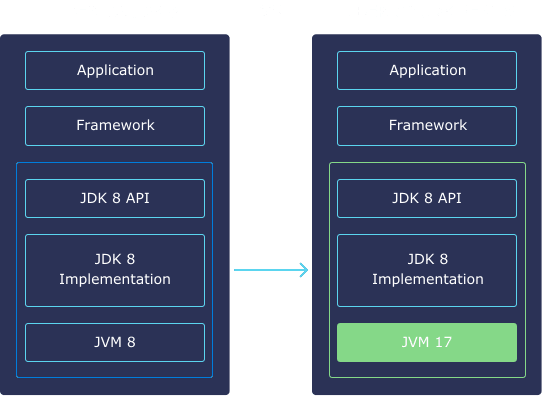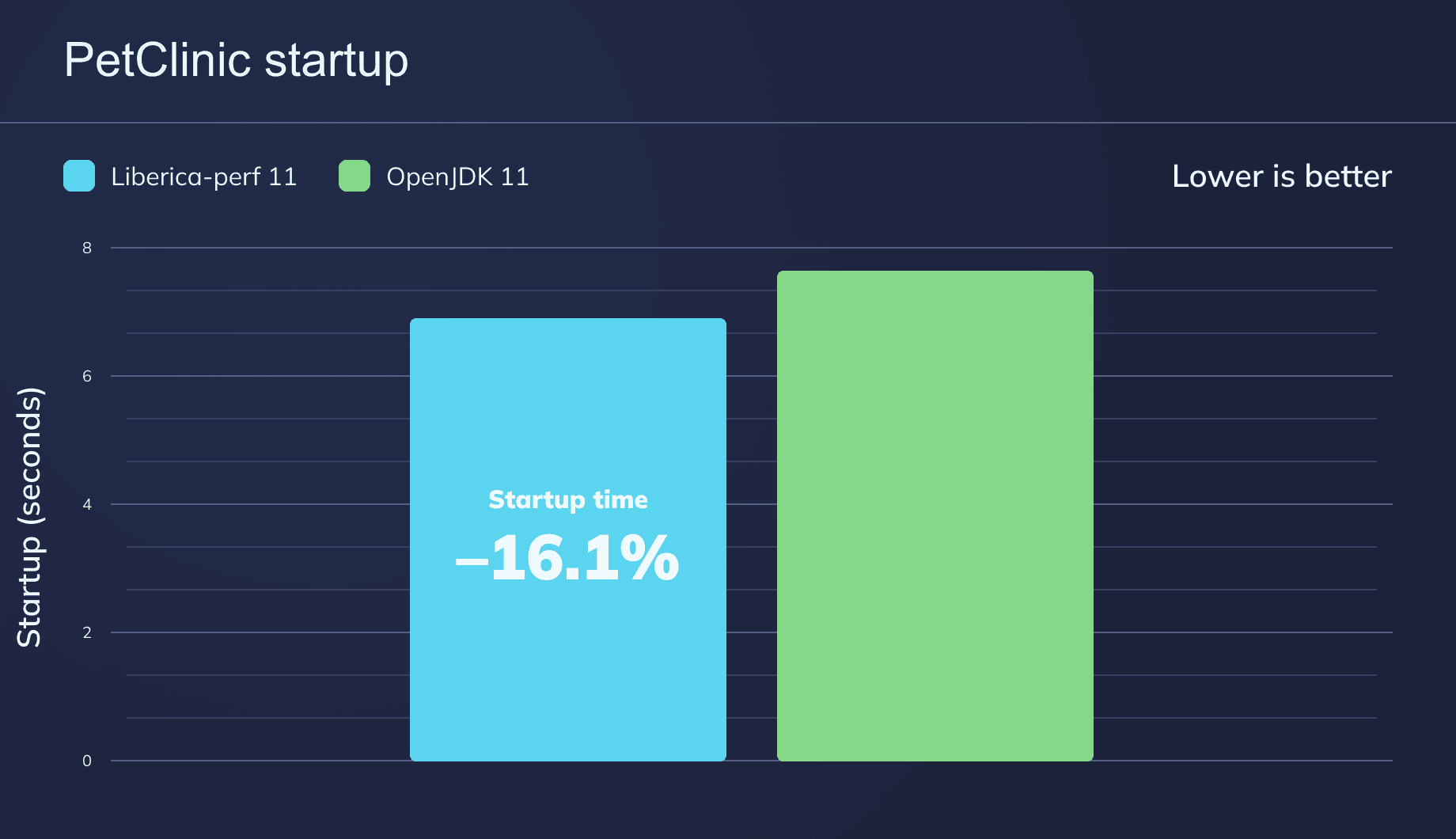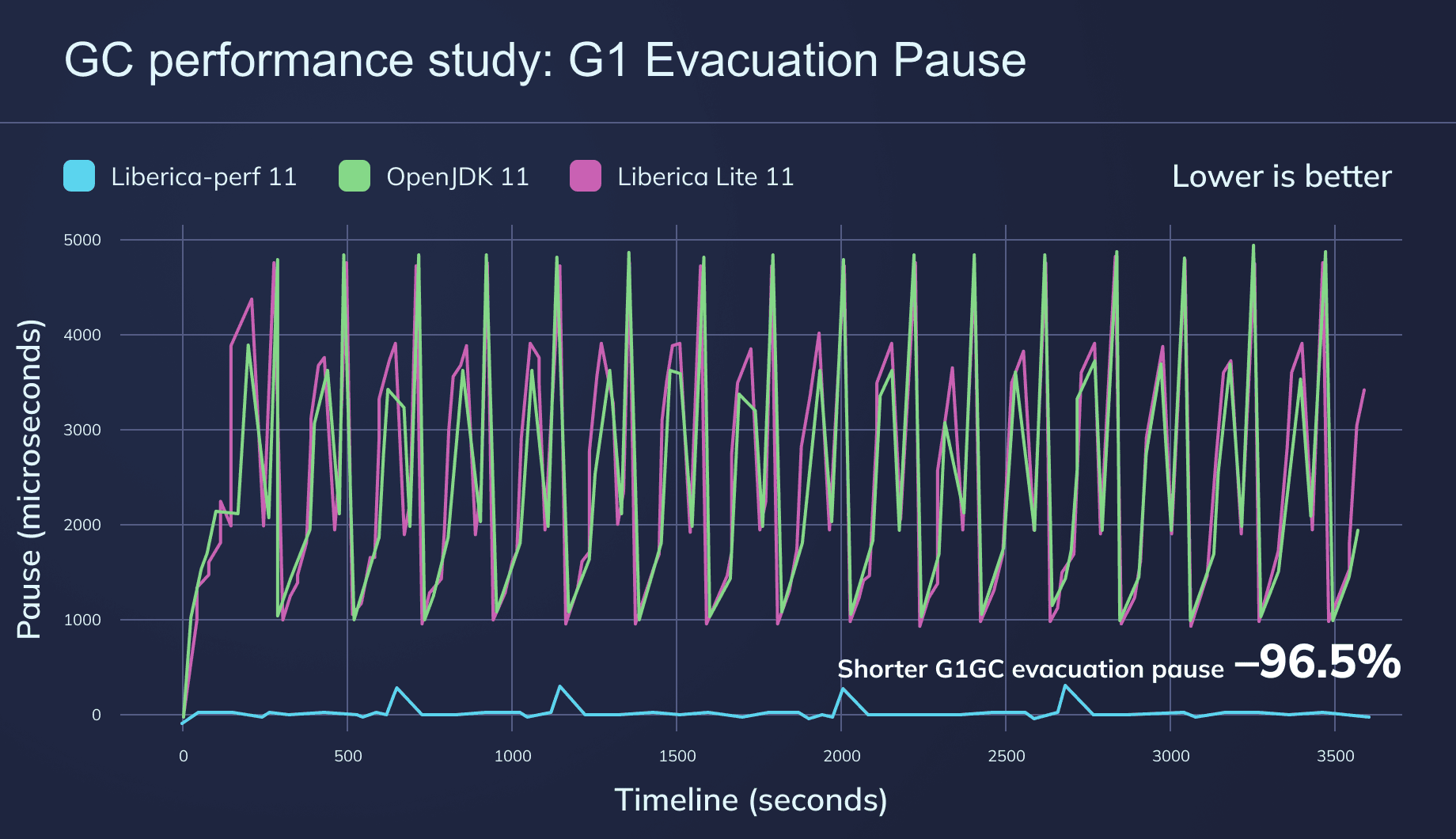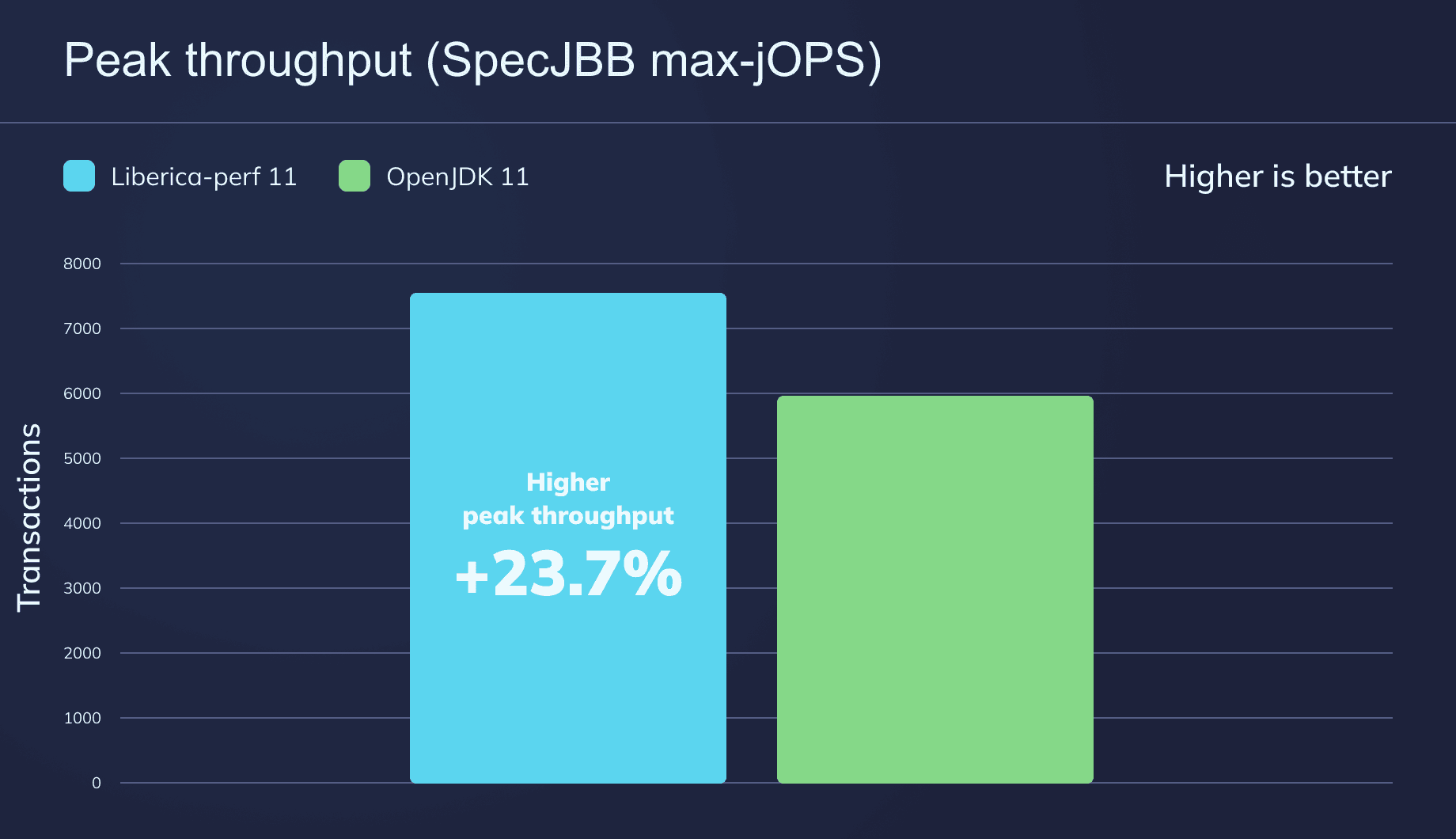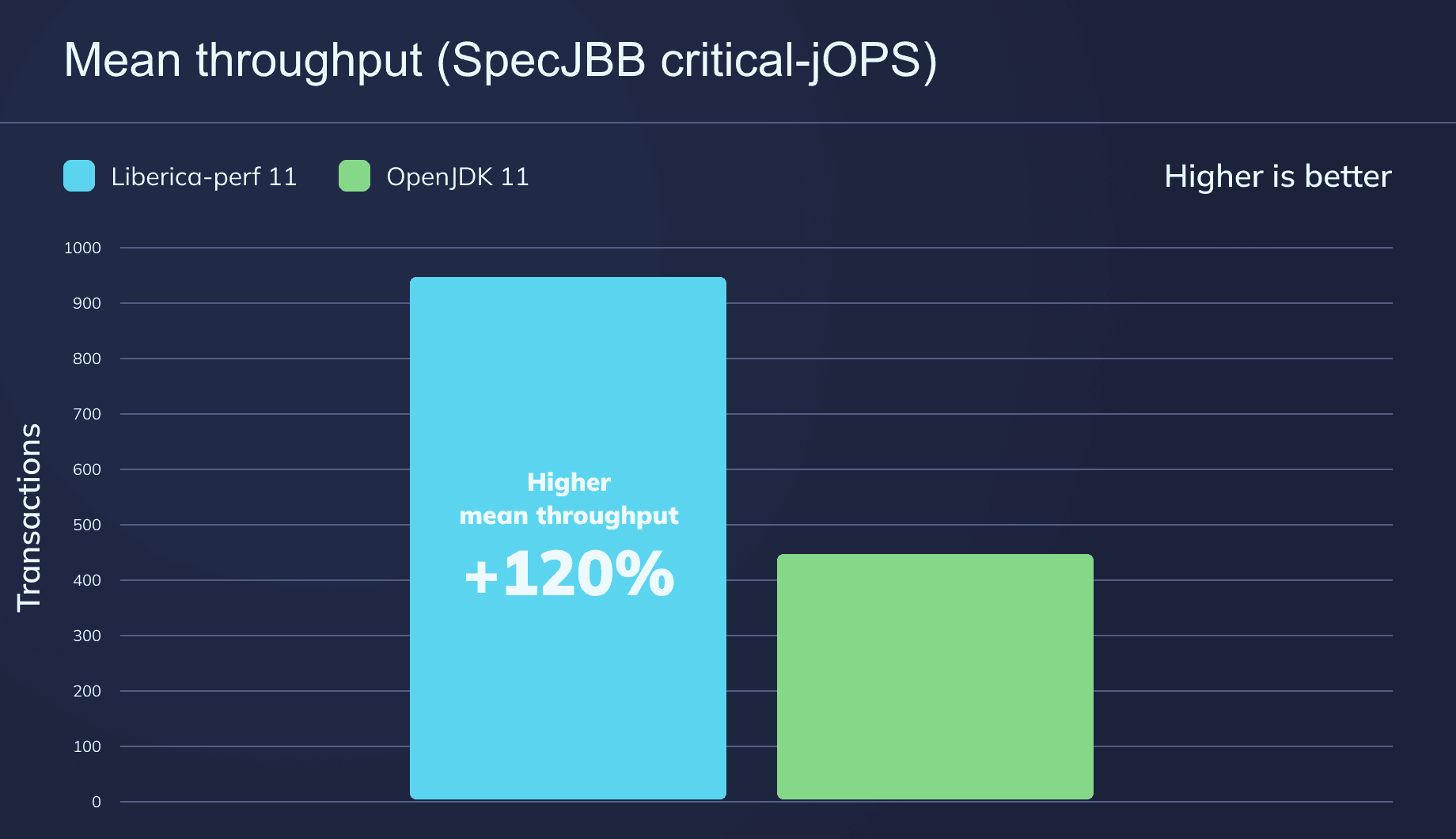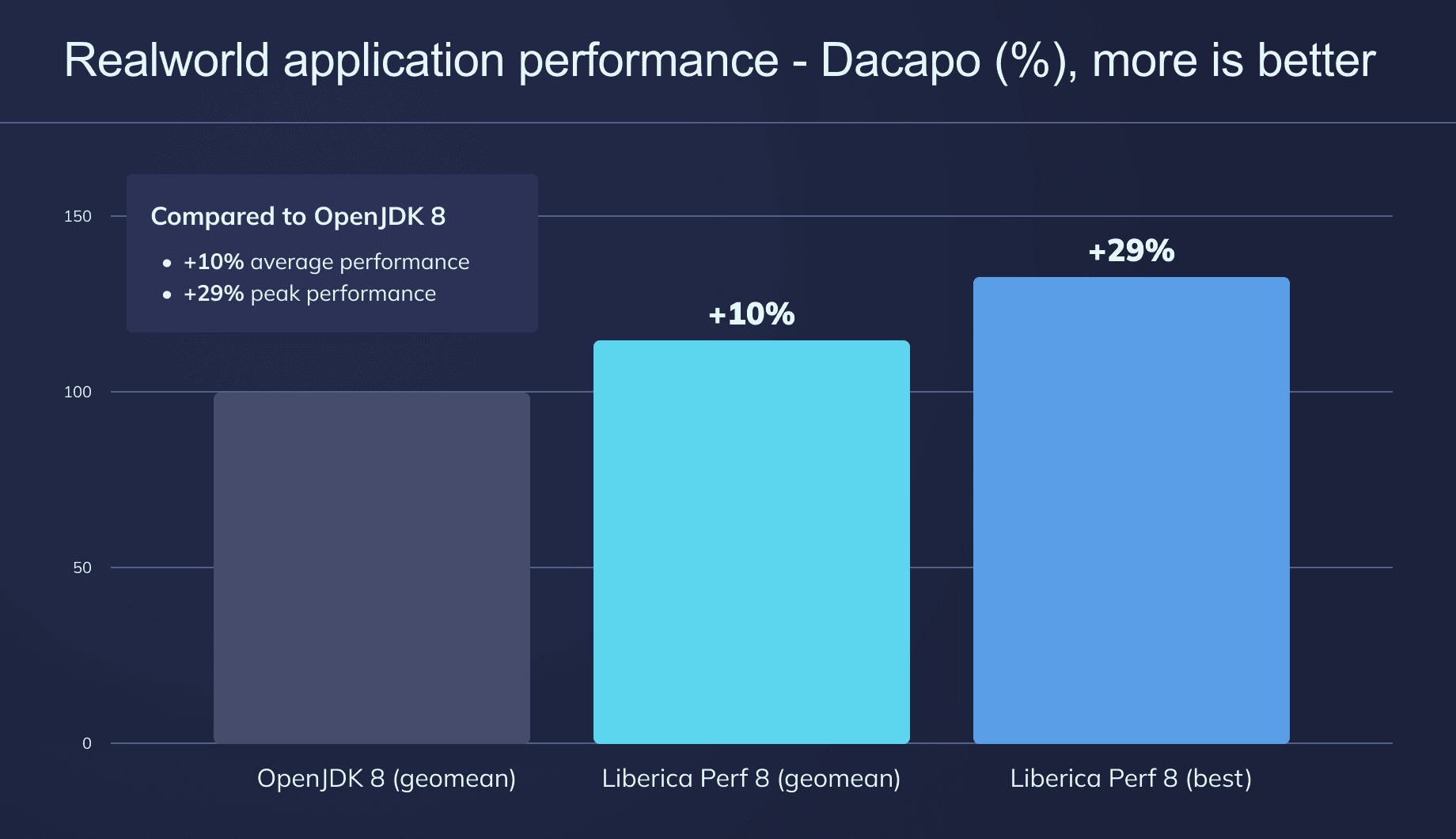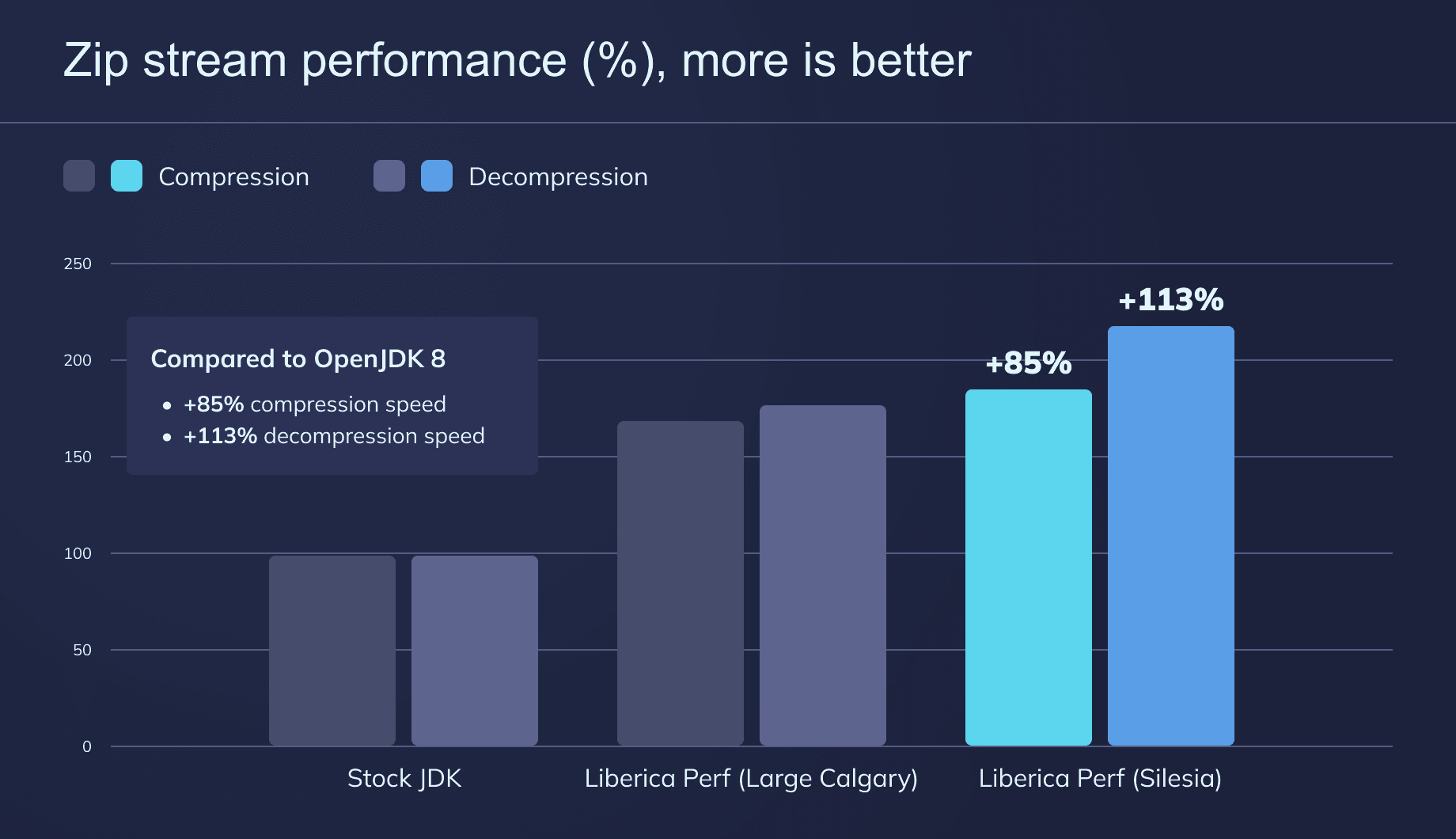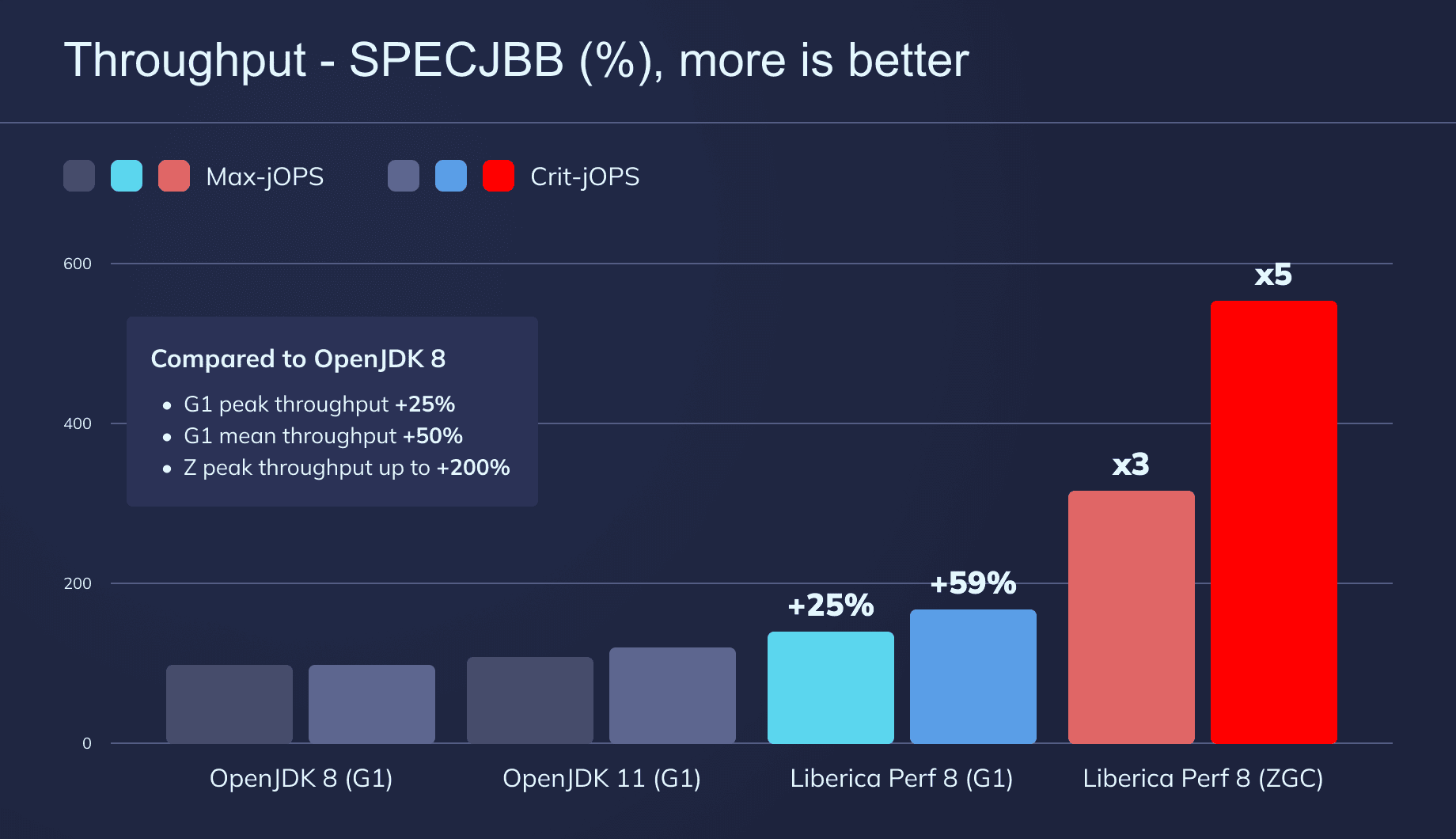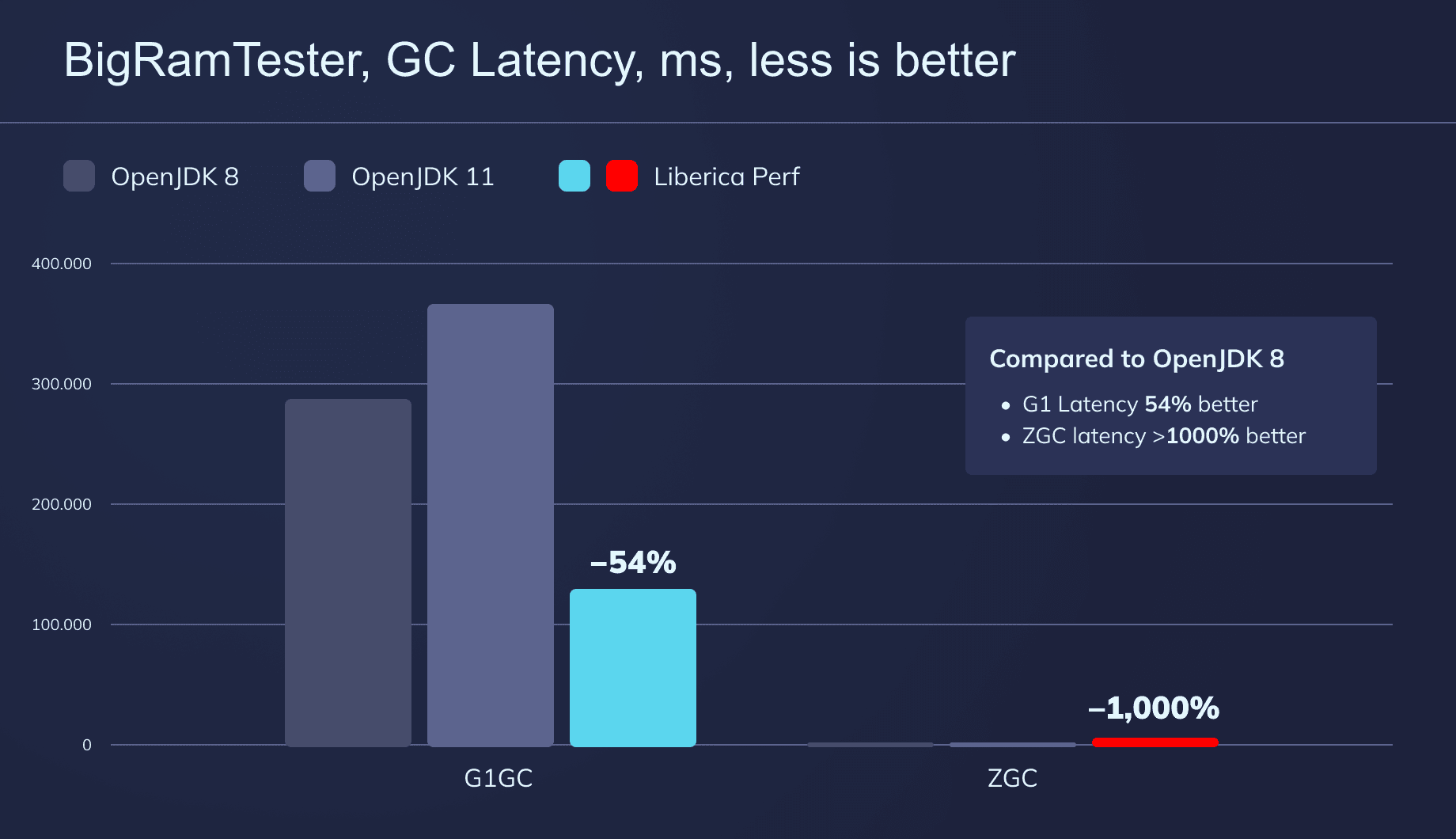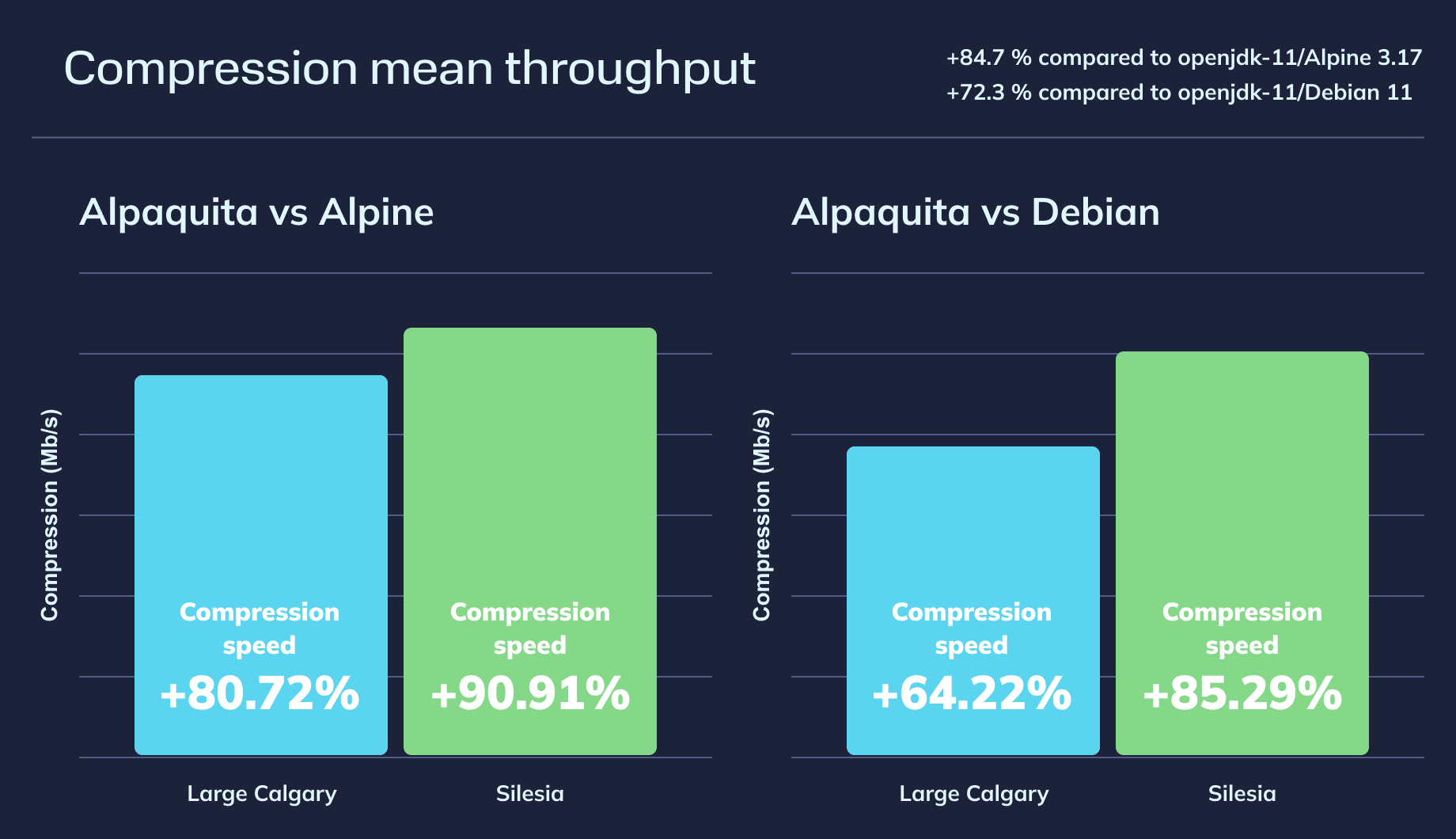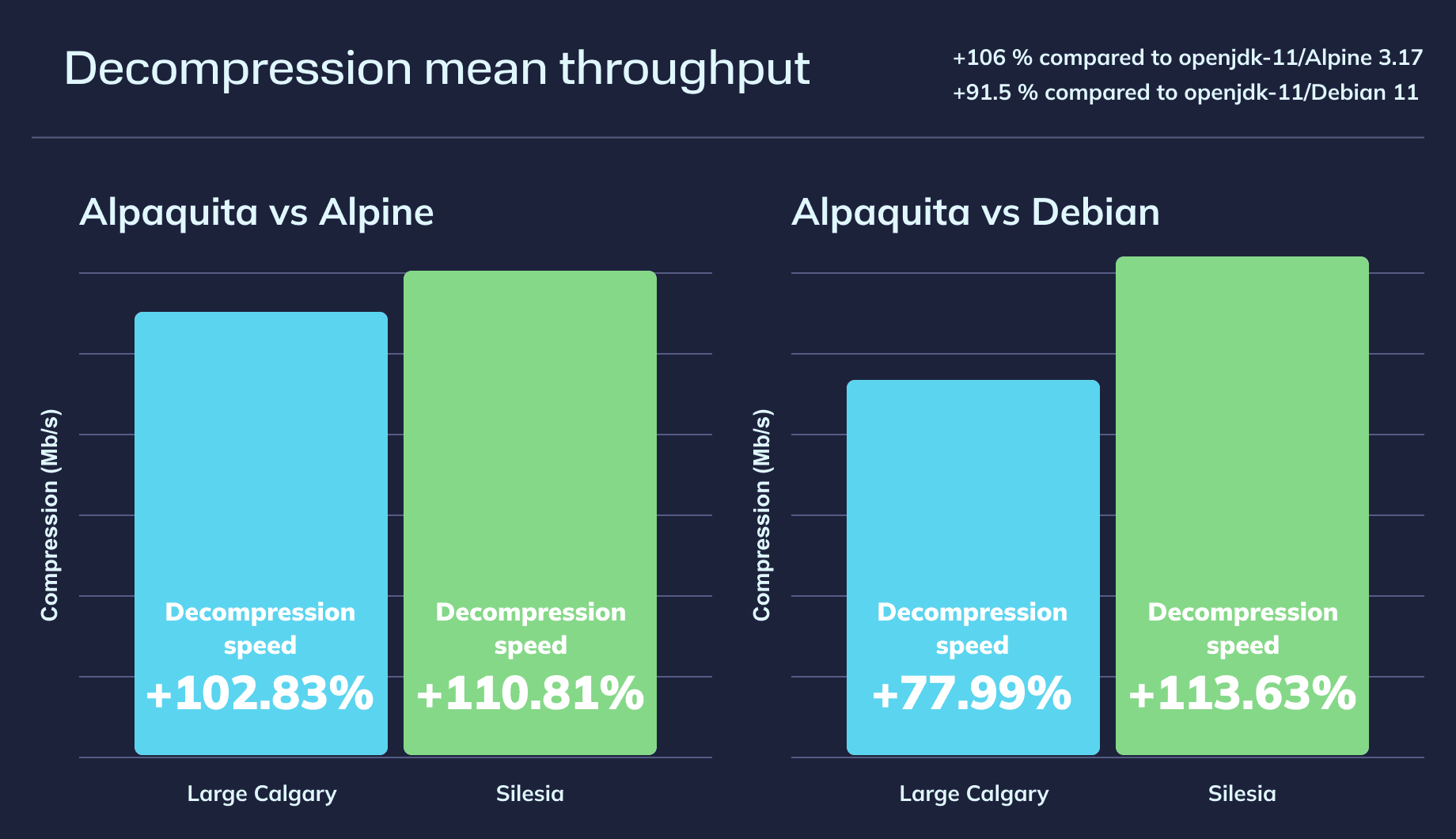Liberica JDK Performance Edition offers versions of JDK 8 and JDK 11 that have the core JVM and HotSpot from JDK 17 baked into the legacy JDK 8 and JDK 11 builds. Updating just one component of your stack enables you to maintain compatibility while still benefiting from the enhancements of Java 17.
This integration is not just about incorporating newer features; it's about harnessing the power of JDK 17 to optimize key performance metrics: startup time, throughput, and latency.
Whether you're working with legacy systems or constrained by specific JDK requirements, Liberica JDK Performance Edition empowers you to unlock efficiency and some features of JVM 17 without sacrificing compatibility.
